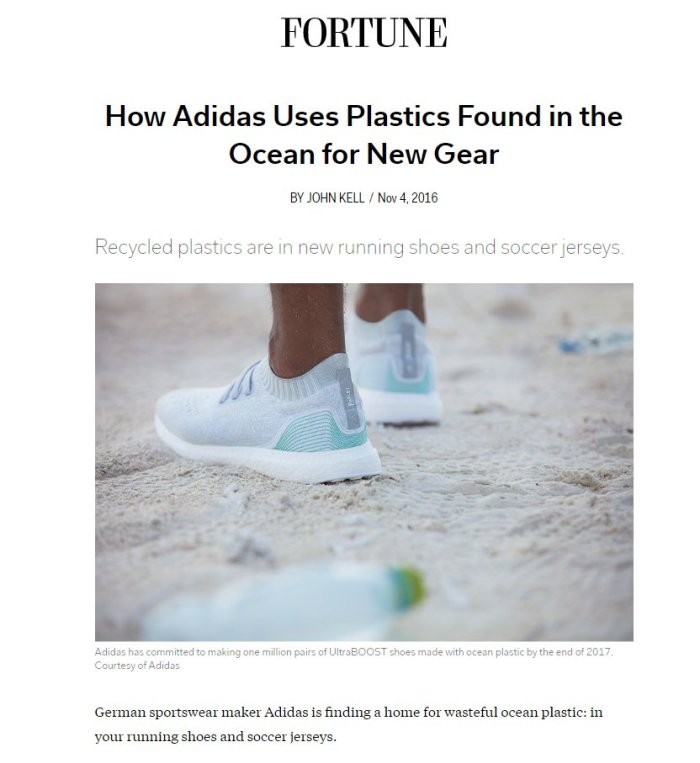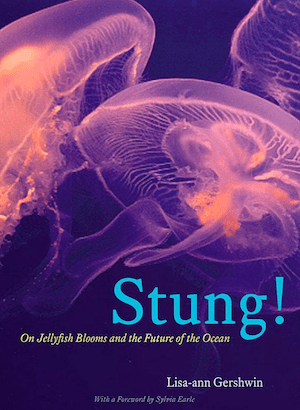From ocean trash to fashion smash.
Ocean Alliance CEO Ian Kerr writes: “I am working on a project with Adidas who are making shoes out of recycled plastic. I am off to the Maldives Islands where we are intercepting plastic before it reaches the oceans (principally plastic bottles) with a team from Adidas. Ill be sending back posts to the Ocean Alliance website so please check it out.”
For more than four decades, Ocean Alliance has been a global leader dedicated to whale research and ocean health. In 2008 the organization moved its headquarters to one of Gloucester’s landmarks, the Paint Factory (built ca.1880s). Ocean Alliance http://www.whale.org/
By 2017, Adidas will produce 1 million UltraBOOST sneakers with material made from trash grabbed from the ocean. “Meanwhile, soccer jerseys that use the plastic will be worn by the Real Madrid squad when it plays Real Sporting de Gijón later this month. Eric Liedtke, responsible for global brands at Adidas, claims that the jerseys will be the first to be made completely from materials found in oceans.” Read more Fortune magazine

One hour at a time gang — imagine all those plastic bottle trash pick ups they’ve done! See Donna’s post for details about meeting at Dogtown this week. Maybe New Balance is working on something similar and a Neptunes Harvest like model.
GMG 2013 post Charting the paths for plastic soup patches of our oceans


